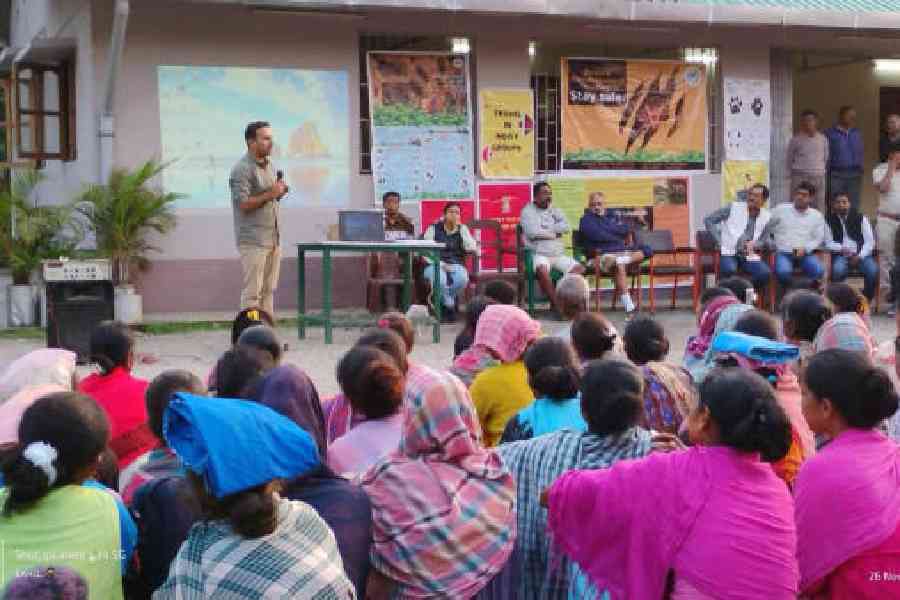The forest department has started an awareness campaign among residents of tea gardens and forest villages in the Dooars region in an effort to reduce man-animal conflict, especially during the winter month.
Forest officials maintain that there is generally a rise in leopard and elephant attacks during winter months.
While leopards, particularly females with cubs, often seek refuge in the high drains of tea gardens, sometimes leading to attacks on people and livestock, elephants enter villages in search of food.
Foresters managed to cage a female leopard at Chaklabusty in Mal block of Jalpaiguri district on Friday night.
For the past couple of weeks, the leopard had been attacking livestock in the area.
Also on Friday night, a wild elephant damaged five huts at Naya Sylee tea estate in Nagrakata block in Jalpaiguri district.
Residents said that the lone elephant strayed into the tea garden from the nearby Sipchu forest and returned to the forest after damaging the huts.
Sources said that the area had in recent years witnessed a surge in such conflicts, resulting in casualties, crop damage and property loss.
Parveen Kaswan, the DFO of Jaldapara wildlife division, stated that the department had been visiting tea estates and forest villages to educate people about safety measures.
Awareness camps will be conducted in some 50 schools, nine forest villages and 14 tea gardens.
The foresters are stressing the following preventive measures:
Avoid cellphone near forests: People are advised against using cell phones near forests as it can distract them from potential animal threats. Talking or watching videos on the phone can also attract the attention of animals.
Restrict evening and morning outdoor activities: Individuals, particularly children and elderly persons who are soft targets, should avoid venturing out during mornings and evenings/nights when leopard attacks are more common.
Group activities: People in tea gardens should work in groups to deter wild animals from attacking them. Also, it is advisable to walk in groups in forested areas.
Clear vegetation: Removing bushes around homes will help reduce the hiding spots for leopards.
Avoid alcohol storage: Elephants are attracted to the smell of alcohol, so it is crucial to keep alcohol, including indigenous fermented drinks, properly packed and out of reach.
The DFO called for the importance of coexistence between humans and wildlife, especially in fragmented forest areas and tea gardens.
Representatives of tea garden management have also been urged to cooperate with the forest department to ensure the safety of their workers.
Chinmoy Dhat, the chairman of the Tea Association of India (north Bengal), applauded the initiative of the forest department to minimise human-animal conflict in the area.
“This is a much-needed step. We are ready to extend all cooperation for the safety of the tea workers,” added Dhat.
Additional reporting by our Jalpaiguri correspondent










